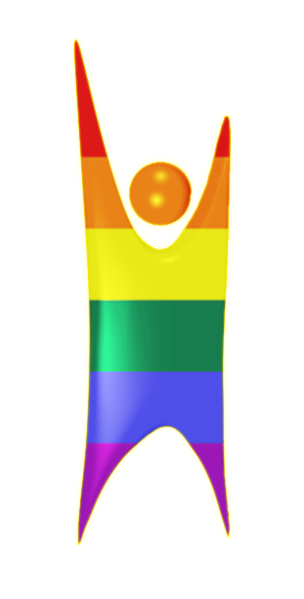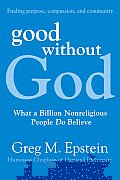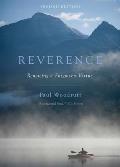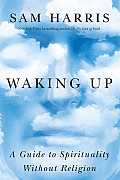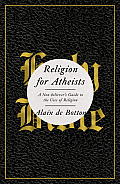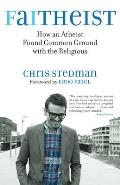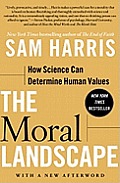What is Humanism?
Those who are attracted to a positive, progressive philosophy, without the rigidity of traditional religions, embrace the vibrant outlook of humanism, the radical idea that you can be good without a god. To learn more about Humanism in general, or humanist ceremonies in particular, please see the following books or articles...
The original Humanist Manifesto of 1933
by Greg Epstein
With a focus on the positive, Harvard University's Humanist Chaplain highlights humanity's potential for goodness and the ways in which Humanists lead lives of purpose and compassion. Humanism can offer the sense of community we want and often need in good times and bad, as we celebrate marriages and the birth of our children, and as we care for those who are elderly or sick. In short, Humanism teaches us that we can lead good and moral lives without supernaturalism, without higher powers . . . without God.
by Paul Woodruff
Reverence is an ancient virtue that survives among us in half-forgotten patterns of civility and moments of inarticulate awe. Reverence gives meaning to much that we do, yet the word has almost passed out of our vocabulary. It transcends religious boundaries and can be found outside religion altogether.
Woodruff draws on thinking about this lost virtue in ancient Greek and Chinese traditions and applies lessons from these highly reverent cultures to today's world. The book covers reverence in a variety of contexts — the arts, leadership, teaching, warfare, and the home — and shows how essential a quality it is to a well-functioning society.
by Sam Harris
For the millions of Americans who want spirituality without religion, Sam Harris's new book is a guide to meditation as a rational spiritual practice informed by neuroscience and psychology.
Waking Up is for the 30 percent of Americans who follow no religion, but who suspect that Jesus, Buddha, Lao Tzu, Rumi, and the other saints and sages of history could not have all been epileptics, schizophrenics, or frauds..
by Alain De Botton
Religion for Atheists suggests that atheists shouldn’t trash religion, they should steal from it—because the world’s religions are packed with good ideas on how we should live in and arrange our societies. In a highly original and readable tone that blends deep respect with total impiety, de Botton (a non-believer himself) proposes that we should look to religions for insights on, among other topics, how to: build a sense of community, make our relationships last, dampen feelings of envy and inadequacy, escape the 24-hour media world, go traveling, get more out of art, and build new businesses geared around our emotional needs.
by Bo Bennett
Positive humanism is an applied secular humanistic philosophy based on the scientific findings of positive psychology that focuses on personal, professional, and societal flourishing. As an applied philosophy its focus is on ideas that lead to increased well-being. More at www.positivehumanism.com
by Chris Steadman
Stedman draws on his work organizing interfaith and secular communities, his academic study of religion, and his own experiences to argue for the necessity of bridging the growing chasm between atheists and the religious. As someone who has stood on both sides of the divide, Stedman is uniquely positioned to present a way for atheists and the religious to find common ground and work together to make this world—the one world we can all agree on—a better place.
by Sam Harris
Bringing a fresh perspective to age-old questions of right and wrong, and good and evil, Harris demonstrates that we already know enough about the human brain and its relationship to events in the world to say that there are right and wrong answers to the most pressing questions of human life. Because such answers exist, moral relativism is simply false — and comes at increasing cost to humanity. Nor do the Religious fundamentalists have it right. Just as there is no Christian physics or Muslim algebra, there can be no Christian or Muslim morality.
Process-Relational Philosophy: An Introduction to Alfred North Whitehead
by C. Robert Mesle
2008, Templeton Press, West Conshohocken, PA.
Humanism and Christianity
by Martin C. D'Arcy
1970, Meridian Boks, Cleveland, OH.
What Torture Taught Me: ANd Other Reflections on Justice and Theology
by William F. Schultz
2013, Skinner House Books, Boston, MA.
We Pledge Our Hearts: A Treasury of Poems, Quotations, and REadings to Celebrate Love and Marriage.
By Edward Searl
2006, Skinner House Books, Boston, MA.
Three Prophets of Religious Liberalism: Channing, Emerson, Parker
ed by Conrad Wright
1986, Skinner House Books, Boston, MA.
Reason and Reverence: Religious Humanism for the 21st Century
by William R. Murry
2007, Skinner House Books, Boston, MA.
Becomming More Fully Human: Religious Humanism as a Way of Life
by William R. Murry
2011, Religious Humanism Press, New Haven, CT.
The Age of Doubt: Tracing the Roots of Our Religious Uncertainty
by Christopher Lane
2011, Yale University Press, New Haven, CT.
Making the Manifesto: The Birth of Religious Humanism
by William F. Schultz
2002, Skinner House Books, Boston, MA
 Touchstone Home
Touchstone Home